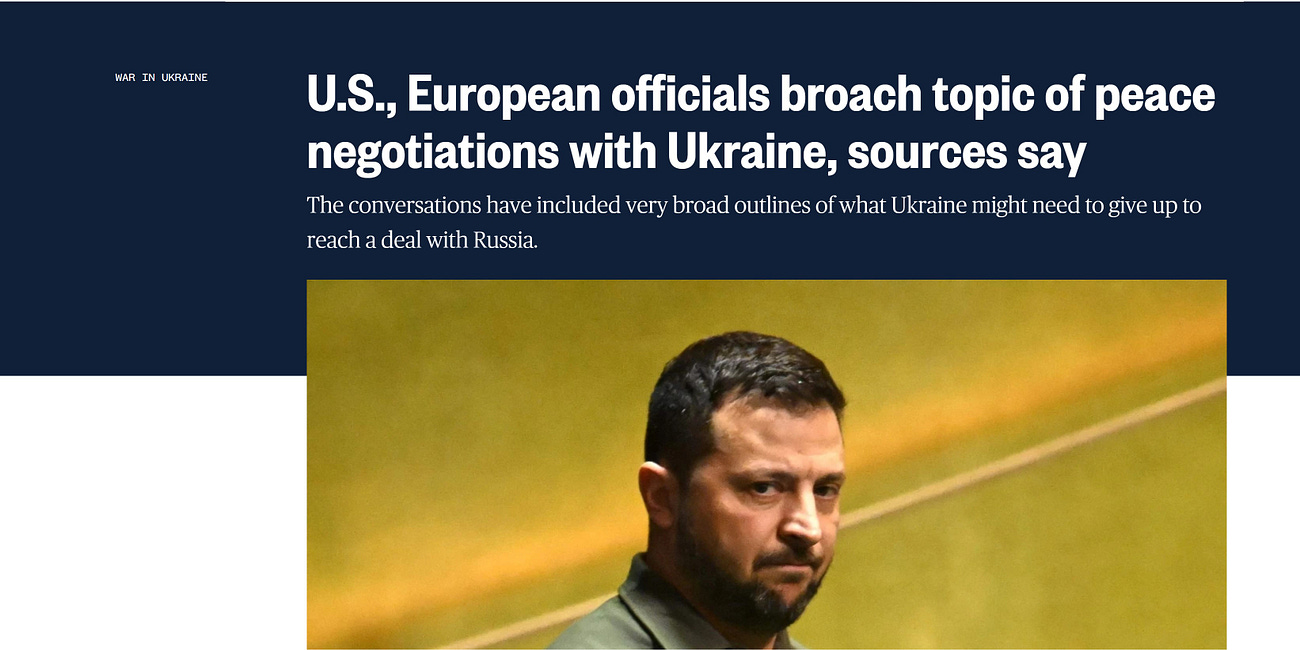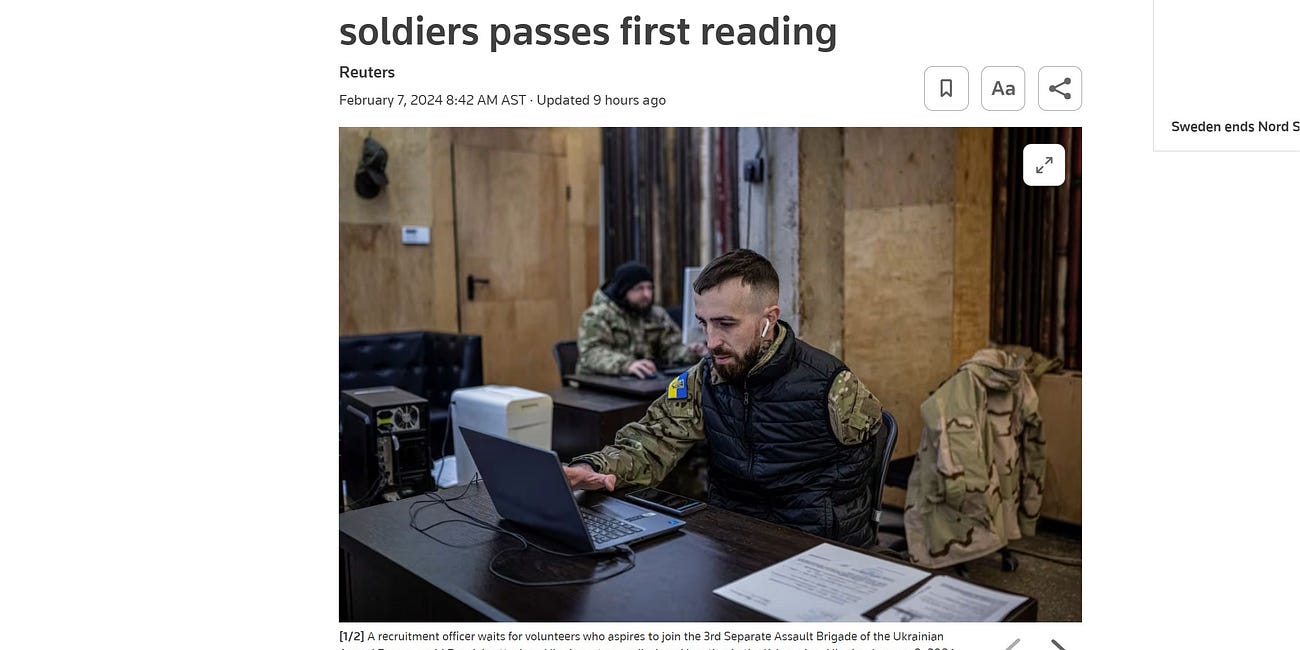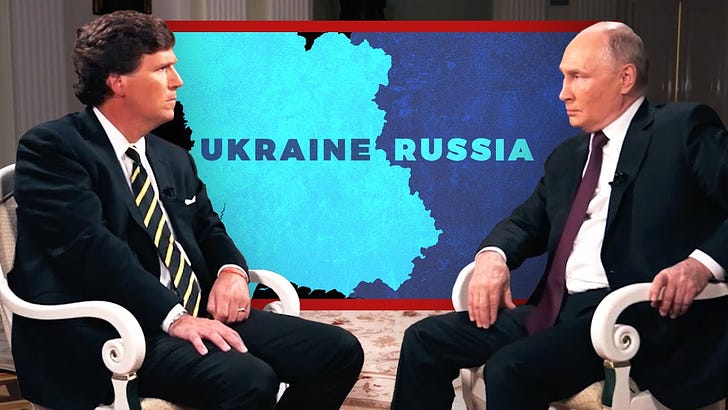Okay, Mike, pretend like I just got here from the moon yesterday. Why is the CIA involved in Ukraine? What's happening here?
Mike Benz: The CIA has been involved in Ukraine for a very long time, but most sort of relevant to this story is we overthrew the democratically elected government of Ukraine in 2014 there was a president in power there in Ukraine named Viktor Yanukovych who rejected a trade deal that the IMF had wanted him to sign which would have effectively forfeited the economic sovereignty of Ukraine to the Euro Atlantic axis and he signed a trade deal with Russia at that time and this was essentially a stab in the back it was perceived by the US State Department and the UK Foreign Office and the rest of the Brussels establishment in NATO and so we activated a rent-a-riot mob a sort of January 6th style insurrection if you will to get the Ukrainian civil society groups that had received $5 billion in State Department, USAID, and CIA cutout money through the National Endowment for Democracy to run that democratically elected president, Viktor Yanukovych, in Ukraine out of office and to install a new president in Ukraine who would be more pliable to so-called U.S. interests. And I'm not even saying this pejoratively. This is just a factual description of what happened.
Victoria Nuland, the head of the U.S. embassy there in Ukraine, even confessed to this $5 billion being pumped in. She was personally handing out cookies and water bottles during the Maidan revolution and was caught on a hot mic with Jeff Pyatt from the State Department as well, handpicking the newly installed Ukrainian government Yatsenyuk, the new president after 2014. He was not elected he was selected by the US State Department. And that was even again caught on hot Mike.
So whenever the State Department gives five billion dollars to a network of NGOs, media network of so-called independent media institutions and civil society folks and and NGOs set up to form these renta riots they don't just give $5 billion and leave. They effectively shepherd that money through CIA intermediaries.
The CIA, the Pentagon and the State Department all always move as one through the interagency process.
There's a much bigger story here around the economics of Ukraine and the European gas market, which runs through this whole story. But essentially the CIA was instrumental in actually orchestrating the overthrow of the Ukrainian government in 2014 and then this new New York Times piece is fascinating with its details but it sort of starts the story right after the coup and even then you know the details are quite damning but I can pause there.
Presenter: No actually I do want you to pause there we'll move forward with some more with Victoria Nuland and others I want to circle back to where you began about how we felt knifed in the back he says no to the IMF he says no he signs a deal with Russia were we knifed in the back?
Benz: Well, this is what the official sort of story is from the State Department. I mean, Viktor Yanukovych had signed multiple corporate deals with U.S. companies, including a $10 billion deal between Chevron and the Ukrainian gas giant, Nafta Gas. But there has been a long play here to privatize Nafta Gas, sell it off to, and I'm not being hyperbolic when I say this, but to literally George Soros, as well as other London financiers like Bill Browder, to privatize that natural gas company and turn it over to the foreign direct investment of Wall Street in London.
And so there had been plenty of economic deals that Yanukovych had been involved with on the U.S. side. But he thought that that trade deal was too much. That would have, again, sort of forced this mass privatization to the IMF. And he signed with Russia.
And so we sort of paint him as this kind of dictatorial Russian puppet. But the fact is, at that time, before eastern Ukraine broke away, Ukraine was split. All of eastern Ukraine was effectively ethnic Russians and so Ukraine's internal politics reflected a very complex tightrope walk between the eastern and Western powers and they had given much to the Western powers as NATO was attempting to fold Ukraine into it as they declared in 2008 but that trade deal was perceived as too much and we thought we could get away with it the CIA and the State Department and the Pentagon none of them were expecting the counter-coup that ensued when Crimea broke off and then voted in an independent referendum to join the Russian Federation and when both of the major provinces in the Donbas essentially declared themselves breakaway states and were militarily backstopped by Russia.
The U.S. at that point had never really prepared for a kind of fiscal conflict with Russia, and so were woefully unprepared for this counteroffensive, this Kiev-fronted but U.S. and London-backed military excursion to reconquer those territories.
That's what the CIA was doing from 2014 through 2022. These military bases that are referenced in the New York Times piece completely omit the fact that we were funding and financing through military aid and through all manner of sort of humanitarian aid that goes into clandestine operations we were militarily backing the Kiev government's military reconquest of the Donbass after they broke away in 2014.
The New York Times leaves that out because it unfortunately does not paint a very pretty picture of U.S. diplomacy in the years preceding the 2022 conference.
Presenter: Mike before we get into more specifics on a macro level why are we so in love or I should say involved with this area with this region it's a former Soviet state they're always fighting each other killing each other this territory that territory this guy owns this that guy owns that and yet I'm listening to you here and I've been doing a bunch of reading on this for at least a decade it looks like we've been obsessed with this place what am I missing
Benz: well you know the movie The River A River Runs Through It well in Ukraine the energy runs through it uh I mean to answer this full story fully you know requires sort of a long scope over the role of military and energy in uh in geopolitics but you know the sort of short version of it is uh Russia was a colony of the U.S from 1991 to 1998 during the Yeltsin years. Putin rose to power in sort of the ash heap of the Soviet empire at a time when its stock market had fallen to something like 5% of what it once was and having sort of the US London access privatized and sell off almost all the key assets held by the Soviet government during the communist era and the only two things that Putin had to rise to prominence again after 1998 were the fact that Gazprom and the Russian gas market were still is the largest company in the world, largest company. And that was because the entire Russian economy essentially ran on Russian energy exports to Europe, which runs through Ukraine. It also runs to Germany through the Nord Stream pipelines, but maybe that's a story for another day.
But essentially Ukraine is the portal into Europe and Russia's entire economy is based on being able to sell its energy to Europe, or at least it was before 2022. And so if you could get Russia off of the European energy market if you could kick Russia from Ukraine, then you could bankrupt Russia. And if you bankrupt Russia, you also take them out militarily.
Russia opposes the U.S. militarily in almost every region on the face of the globe. I mean, President Obama did a land invasion of Syria, and he was only repelled because of the Russian military backstopping of the the Syrian government through the S-400 missile systems and others. Russia also has a robust arms industry. It's sort of their second export other than energy to all over Africa and Latin America providing arms to groups that are being essentially locked in a destabilization conflict with Pentagon-backed forces.
So if you can kill Russian energy, you kill the Russian military. And so there's a lot of upsides from the foreign policy perspectives, establishment's perspective, to kill Russian gas and then have that essentially fall to U.S. companies.
This is a classic sort of U.S. diplomacy from the 20th century. You have to remember Russia and that whole Eurasian mantle there is something like two-thirds of the entire world's hydrocarbons. If you kick Russia out, now we control basically everything from the Black Sea to the Caspian Sea everything from Georgia and Azerbaijan essentially falls into our grasp as well so if you can kick Russia from Ukraine you basically win the entire Eurasian continent as well as unfettered militarism around the world so there's a million reasons to do it and the fact that you essentially rob them in the process by stealing a trillion dollars worth of energy market proceeds by having U.S. companies like Chevron, Exxon, Halliburton, Shell in London, take over the market through LNG of what Russia used to have through Gazprom. All of that you would say is, you know, you'd make the argument is just classic 20th-century diplomacy with how we built our middle class by doing this to every other country during the Cold War.
But we were not expecting this sort of robust military response from Russia, and it is now sort of put the question to a head in terms of how far the US is willing to go to do its traditional empire-building.
Presenter: Is Russia going to win? I get some mixed reports on this, but obviously, a lot of this stuff is going to be resolved by whoever wins this Russia-Ukraine dust-up. What's happening now, Mike?
Benz: Well, it's hard to penetrate the fog of war there. I mean, obviously, things do not look good right now from the U.S. State Department's perspective. You know, there was, after losing a very significant amount of territory in Ukraine, not the commercial sort of side of Ukraine, which is western Ukraine and Kiev, but the eastern portion of Ukraine, which has all of the shale. This is a very important point. Burisma's gas rights and Naftogas's hold their basically market potential was being able to mine the shale that's east of the river there well that is now militarily occupied by Russia so all of the tens of billions of dollars of deals that were signed by US and London companies to exploit those natural resources are now under the military protection and geographic control of Russia and that like a pit bull does not appear to be loosening anytime soon I think what the State Department is ultimately going to try to angle to do is to use infusions of another, you know, probably a trillion dollars worth of U.S. taxpayer money over the next several years to bring things to an effective standstill and not lose any more territory. I think that's the only hope at this point. And then basically strike some sort of peace deal ceasefire on semi-favorable grounds and then effectively upscale the CIA's role to be able to, in a cloak and dagger clandestine fashion, walk back on the signed deal that they plan to make to take the country back while Russia isn't looking.
Further reading:





























Share this post